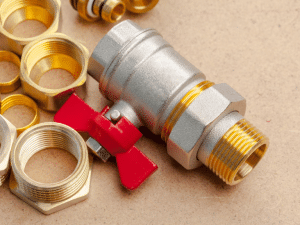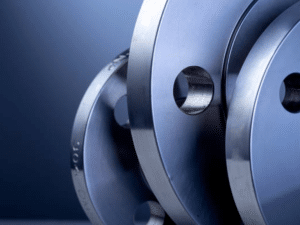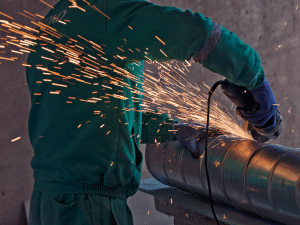Ball Valves vs. Gate Valves: Which Should Your Supplier Recommend?
When it comes to piping systems, even the smallest parts make a big impact. The valve type that you select can influence how well your system functions, whether you are dealing with water, gas, or chemicals. Therefore, having the right ball valves supplier is important. A good supplier will not only sell you the product but also guide you towards the best one, depending on where and how it will be used as a valve. So, when should your project go for a ball valve as opposed to a gate valve? Let’s look at this.
What Are Ball Valves?
Ball valves were named after their round shape and contain a hole inside. The hole runs through the ball, and as you rotate the handle, this opens up so that gas or liquid can pass through the pipe. When the rotation is made again, this stops any flow completely.
Why do people prefer ball valves:
- Easy to use—just a quarter-turn to open or close
- Very reliable when you need a tight seal
- Great for stopping the flow quickly
Many stainless steel ball valve suppliers offer ball valves for places where you need strong, long-lasting performance. Stainless steel also helps prevent rust, which is important in many industries.
What Are Gate Valves?
Gate valves work a bit differently. They use a flat or wedge-shaped gate that moves up and down to control flow. You have to turn the handle several times to open or close it fully. These are better for controlling flow slowly rather than stopping it quickly.
Why are gate valves used?
- Good for systems that stay open or closed most of the time
- Less expensive in some cases
- Allow full flow with very little pressure drop when fully open
They’re not ideal for fast shutoff or repeated use, as the parts wear out more quickly compared to ball valves.
Key Differences Between Ball Valves and Gate Valves
Here’s how they stack up:
1. Opening and Closing
- Ball valves open and close with just a quarter turn
- Gate valves need multiple turns to work
2. Flow Control
- Ball valves are great for full shutoff, not so much for slow flow control
- Gate valves allow more control over how much flow you want
3. Seal Strength
- Ball valves give a stronger seal and are less likely to leak
- Gate valves can wear out over time and become harder to seal
4. Durability
- Ball valves need less maintenance
- Gate valves may jam or wear out faster with frequent use
5. Use Case
- A ball valves supplier may recommend ball valves for systems with high pressure or frequent shutoffs
- Gate valves work well when you just want to leave the valve open for long periods
Applications: Where Each Valve Works Best
Ball Valves Are Best For:
- Oil and gas pipelines
- Chemical processing systems
- Water shutoff lines
- HVAC systems
- Marine and industrial use
Gate Valves Are Better For:
- Water treatment systems
- Underground water lines
- Fire safety systems
- Large pipe systems need slow flow control
In high-pressure or corrosive environments, stainless steel ball valve suppliers usually recommend ball valves because they hold up better under stress.
Why Your Supplier’s Recommendation Matters
A smart choice starts with asking the right questions—and your ball valves supplier should be ready with answers. They’ll consider things like:
- What type of liquid or gas is moving through the system?
- How often will the valve be opened or closed?
- What kind of pressure and temperature will it face?
- Is space tight, or is the valve hard to reach?
A good supplier won’t just recommend the cheapest option. They’ll look at the full picture and suggest what works best in the long run. For example, stainless steel ball valve suppliers often suggest stainless options when corrosion is a concern, saving you trouble down the line.
Final Things to Think About Before You Decide
Still stuck between a ball valve and a gate valve? Ask yourself:
- Will I be using the valve often? → If yes, the ball valve is a better fit.
- Do I need something that seals tightly and quickly? → Ball valves are best for quick shutoff.
- Is budget a big factor? → Gate valves may be cheaper upfront, but may need more maintenance.
- Am I working with high-pressure or harsh chemicals? → Ask your stainless steel ball valve supplier about corrosion-resistant models.
A clear chat with your supplier often saves you time, effort, and money. Don’t be afraid to ask for product comparisons and real-life use cases—they’ve seen it all.
Smart Choices Start with the Right Supplier
Picking the right valve always starts with picking the right supplier. A good vendor does more than fill an order; they ask questions about your setup and steer you toward a solution that matches your flow and pressure needs.
Think about a ball valve when quick shut-off, high pressure, or strong chemicals are in the picture. Stainless steel versions can shrug off the worst risks and keep the line moving smoothly. That durability is why many people dial a stainless-steel ball-valve supplier first.
Spend a few extra minutes on research now, and those valves will reward you with years of worry-free service.







